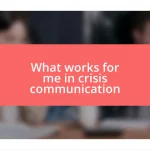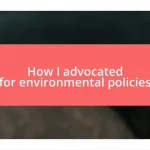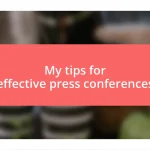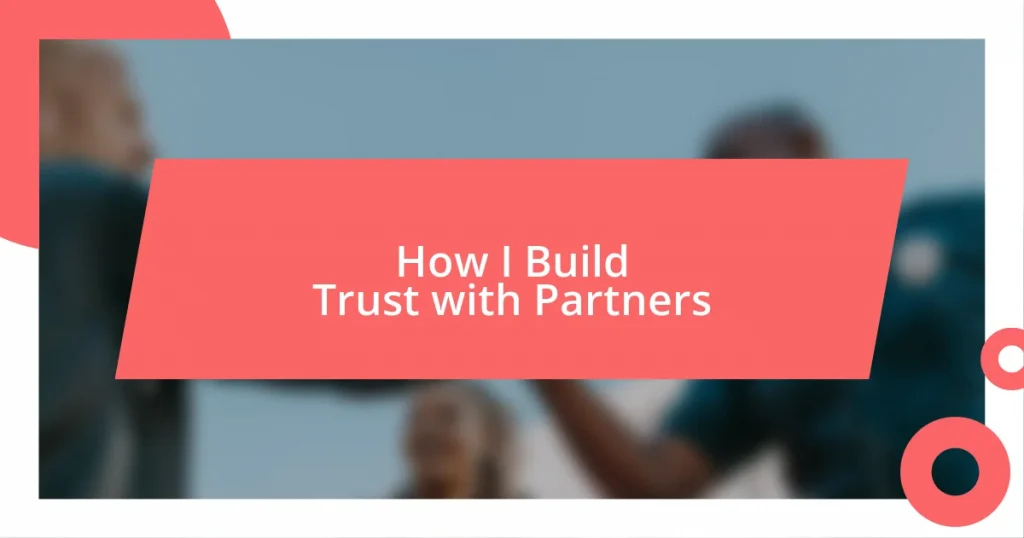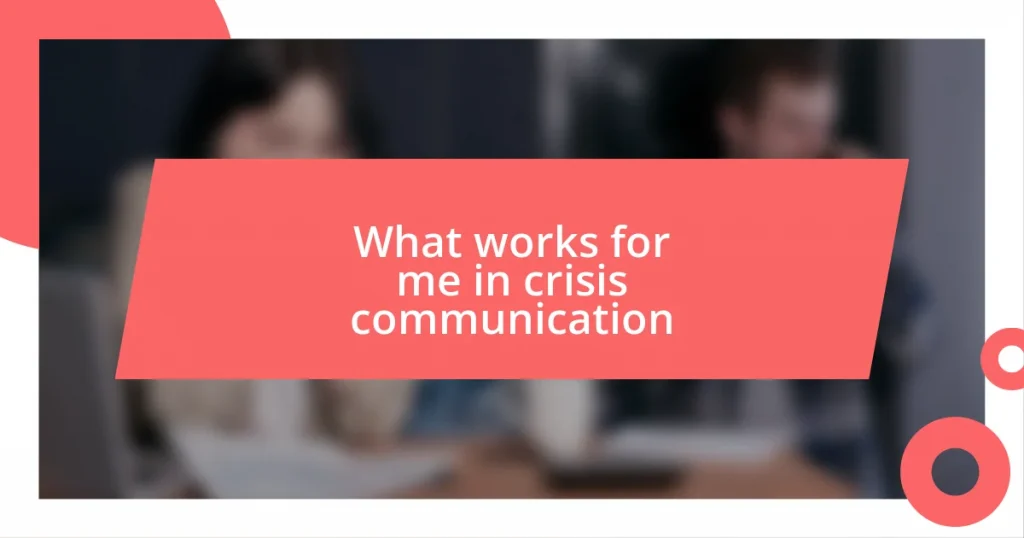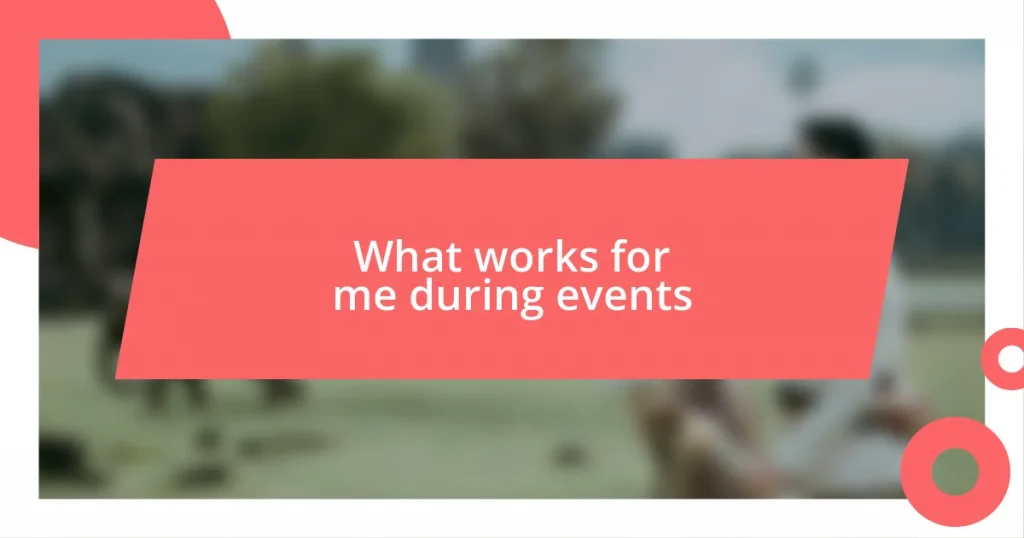Key takeaways:
- Trust is foundational for successful partnerships, promoting open communication, resilience, and collaboration.
- Identifying and sharing core values fosters deeper connections and aids in decision-making and conflict resolution.
- Effective conflict management and maintaining consistent communication over time are crucial for sustaining trust in partnerships.
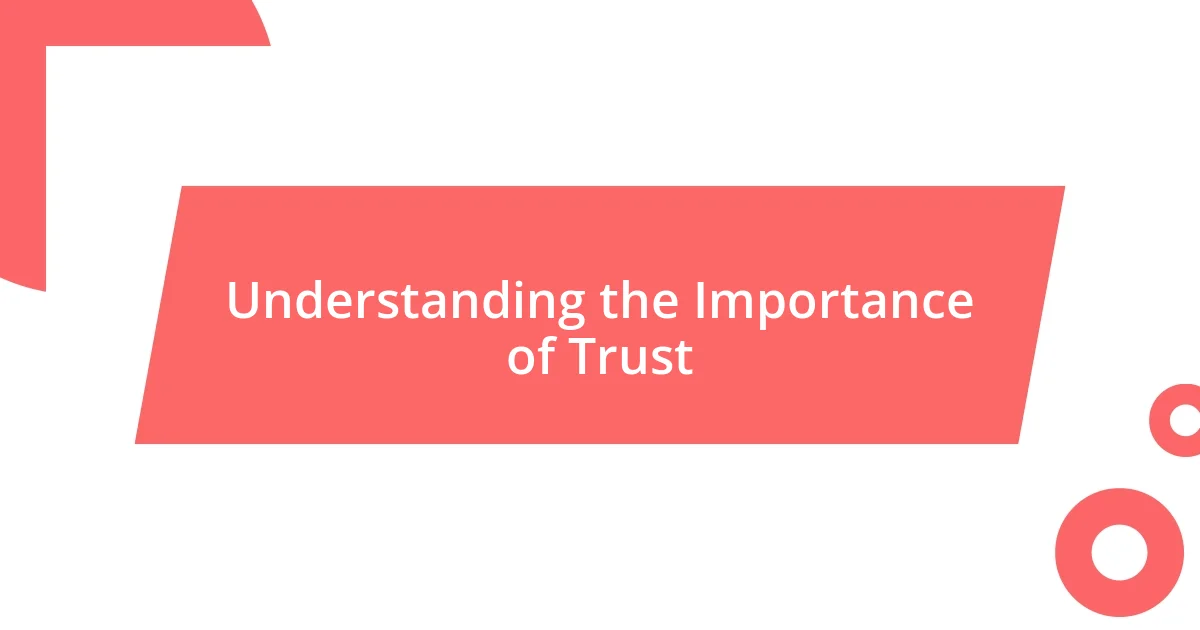
Understanding the Importance of Trust
Trust is the cornerstone of any successful partnership, influencing everything from communication to collaboration. In my experience, when I trust my partners, I find that our conversations flow more freely. Have you ever felt that sense of ease when you’re with someone you can rely on? It’s transformative.
Reflecting on a past partnership, I remember a time when transparency was lacking. The tension was palpable, and it didn’t take long for misunderstandings to arise. Building trust requires this openness; without it, how can we expect collaboration to thrive? Think about how often you need to share your thoughts and concerns—trust creates a safe space for that exchange.
Moreover, I’ve learned that trust fosters resilience. When challenges pop up, partners united in trust navigate obstacles together more effectively. Isn’t it reassuring to know you can lean on someone who genuinely has your back? This level of confidence not only strengthens the partnership but also paves the way for innovation and growth.
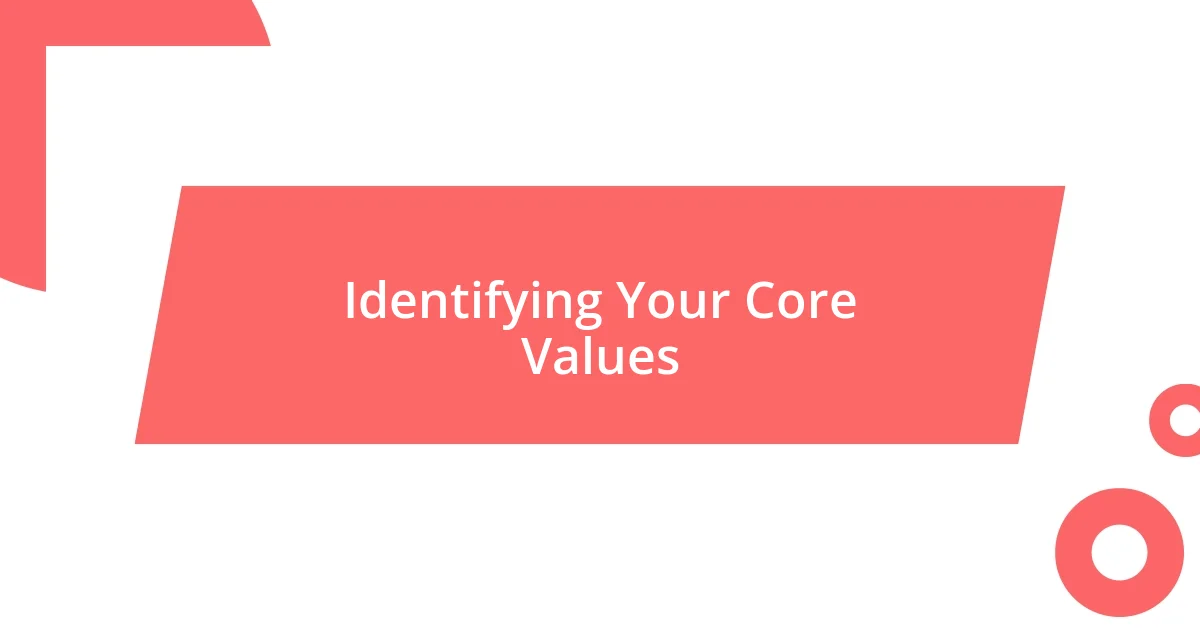
Identifying Your Core Values
Identifying your core values is an essential step in building trust with partners. When I took the time to define what truly mattered to me, it felt like lifting a weight off my shoulders. For example, I realized that integrity and respect weren’t just niceties; they were non-negotiables in my partnerships. By openly sharing these values, I found that my partners had a clearer understanding of my perspective, which helped us bond on a deeper level.
Understanding your core values isn’t just about introspection; it’s a practical exercise. I often recommend writing them down and discussing them with your partners. This proactive approach has shown me how powerful aligned values can be. When I partnered with someone who emphasized creativity as much as I do, the synergy was electric. It led to innovative solutions that neither of us could have achieved alone, simply because we were on the same wavelength.
Ultimately, recognizing and articulating your core values cultivates a framework for decision-making and conflict resolution. Whenever disagreements arise, which they inevitably do, having those values to reference provides clarity. I recall a situation where we faced a tough choice, but our shared commitment to transparency guided us through the discussion. The challenge turned into an opportunity for growth, strengthening our partnership even further.
| Core Value | Personal Experience |
|---|---|
| Integrity | Realized it was a non-negotiable in my partnerships. |
| Respect | Fostering mutual understanding leads to stronger bonds. |
| Creativity | Aligned values sparked innovative solutions in collaborative efforts. |
| Transparency | Guided our discussions during challenging decisions. |
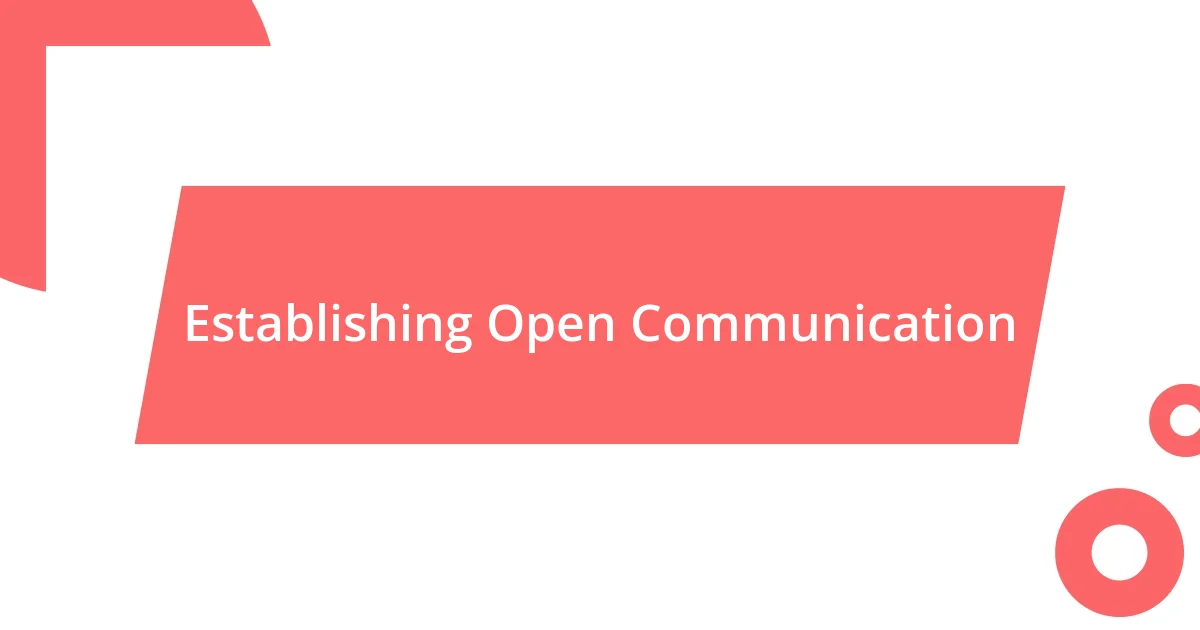
Establishing Open Communication
Establishing open communication is crucial for building trust in any partnership. I remember a time when I hesitated to voice my concerns, fearing it might upset the balance of our relationship. However, I soon realized that withholding my thoughts only led to misunderstandings and disappointment. By fostering an environment of openness, I not only strengthened my connection with my partner but also created a space where both of us could express our ideas freely. The relief of discussing issues openly is something I cherish; it turns the potential for conflict into an opportunity for collaboration.
To streamline open communication, I’ve found the following practices invaluable:
- Regular Check-Ins: Setting aside dedicated time for conversations can alleviate misunderstandings.
- Active Listening: Ensuring that both partners feel heard fosters deeper connections.
- Non-Judgmental Environment: Creating a space where both of us can express ideas without fear helps build confidence.
- Use of Technology: Tools like messaging apps or project management software allow for constant communication and feedback.
- Encouraging Feedback: Welcoming constructive criticism shows that I value my partner’s perspective.
Ultimately, I feel that open communication transforms relationships, paving the way for both personal growth and shared success. Embracing that dialogue has been one of the most rewarding aspects of my partnerships.
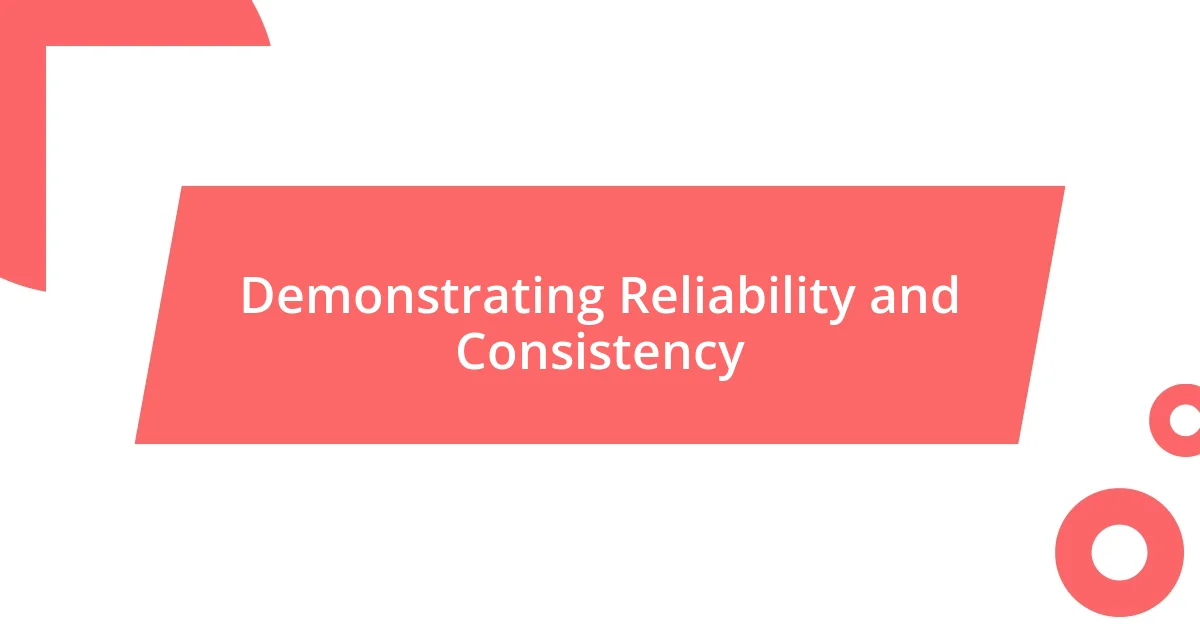
Demonstrating Reliability and Consistency
Demonstrating reliability goes beyond just keeping promises; it’s about cultivating a sense of security in your partnerships. I remember a project where I consistently met deadlines, even when challenges arose. My partner expressed relief, noting that knowing I would deliver on time allowed them to focus their energy on other aspects of the work. Isn’t it reassuring when you know you can count on someone? That kind of consistency creates a foundation that encourages both partners to push each other toward greater success.
I also learned the importance of being dependable in smaller commitments. For instance, I made it a point to follow through on minor tasks, such as responding to emails or attending meetings on time. Surprisingly, these little acts built a significant trust over time. It got me thinking—do we sometimes underestimate the impact of these smaller gestures? Each time I delivered, it reinforced my partner’s faith in my commitment, deepening our collaboration.
Moreover, I found that sharing progress updates played a crucial role in demonstrating my reliability. When I kept my partner informed about milestones, it showed my active engagement and transparency. I recall a time when my partner was anxious about our project’s timeline, but regular check-ins soothed those nerves. By sharing both successes and any hurdles, we created a shared journey, reinforcing our trust in each other. Wouldn’t you agree that open lines of communication, paired with consistent actions, can truly solidify trust in any partnership?
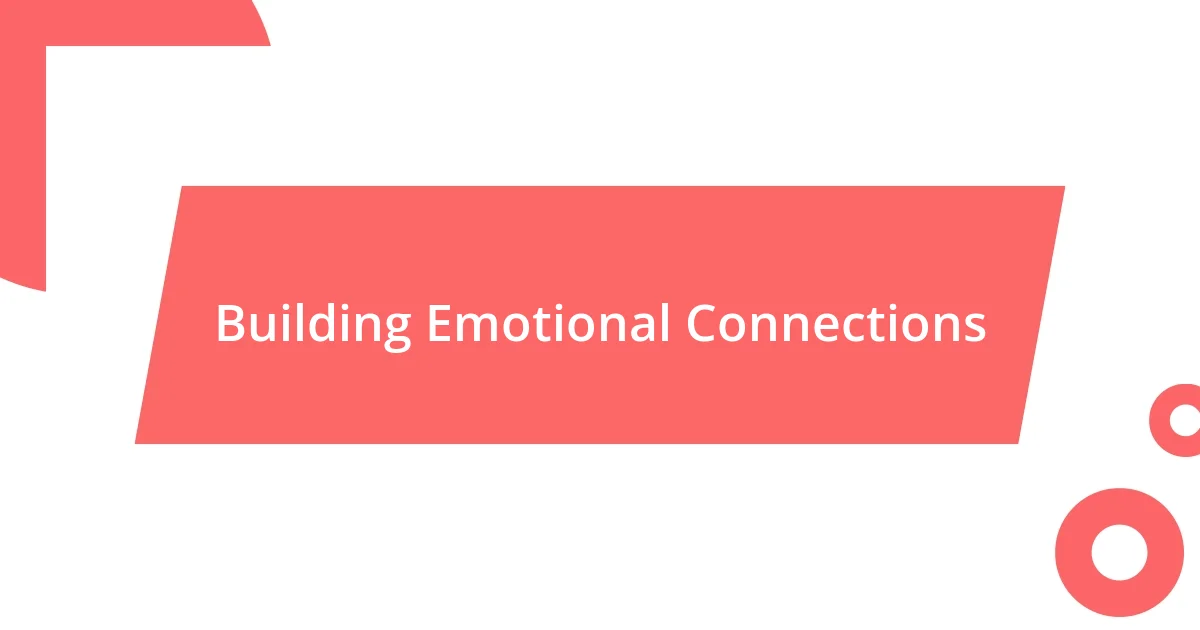
Building Emotional Connections
Building emotional connections is one of the most rewarding aspects of any partnership. I recall a time when I and my partner embarked on a new project, and we set aside time to share our personal stories and motivations. Opening up about our passions not only created a warm atmosphere but also revealed the underlying values we both held dear. Isn’t it amazing how sharing personal experiences can turn a business relationship into something deeper?
I often find that vulnerability is a powerful tool in building emotional connections. There was a moment when I faced a challenge I hadn’t anticipated, and instead of glossing over it, I shared my fears with my partner. Watching them empathize and offer support was a revelation—I realized that by being open about my struggles, I invited them to be real and authentic, too. Can you imagine how much stronger our bond became after that honest conversation?
Additionally, I’ve learned the significance of celebrating each other’s victories, no matter how small. I vividly remember when my partner achieved a personal milestone, and I made it a point to recognize that achievement with a small surprise celebration. The joy on their face was a reminder of how those moments forge lasting emotional ties. In my experience, it’s these shared celebrations that create a tapestry of memories binding us closer together. Have you ever noticed how these shared experiences can truly enhance our connections?
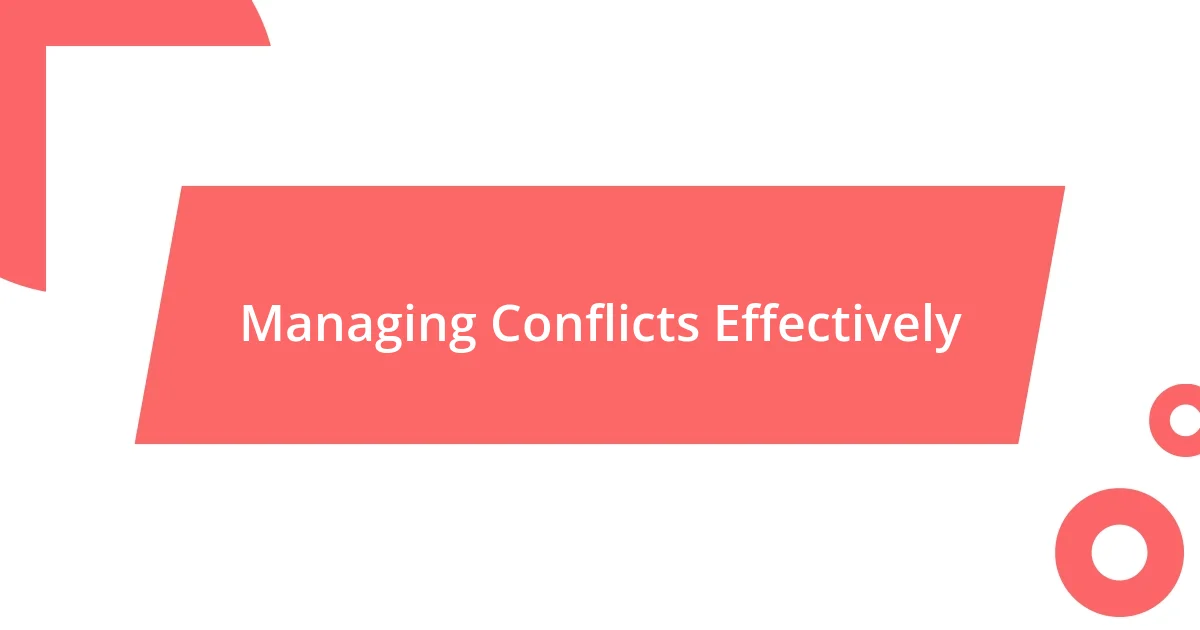
Managing Conflicts Effectively
Conflict is inevitable in any partnership, but I’ve found that managing it effectively can actually strengthen the bond between partners. One time, I had a disagreement with my partner over the direction of a project. Instead of letting it escalate, I suggested a calm discussion where we each voiced our perspectives. This approach not only clarified our viewpoints but also deepened our understanding of each other’s priorities. Have you ever noticed how just talking things out can shift the atmosphere completely?
It’s important to approach conflicts with empathy and a willingness to listen. During a particularly heated exchange about resource allocation, I made it a point to repeat back what my partner said to ensure I understood their concerns. This small act of reflection transformed our confrontation into a collaborative problem-solving session. It struck me how just showing that I truly cared about their thoughts opened the door to a more constructive conversation. Wouldn’t you agree that listening can often diffuse tensions?
In my experience, finding common ground can lead to mutually beneficial solutions. Once, I was involved in a project where we had starkly different priorities. By focusing on what we both ultimately wanted—success for the project—I helped steer our discussion toward a compromise that respected both of our needs. It felt more like a partnership when we worked through that conflict together. In the end, it left us both feeling valued and reinforced my belief that conflicts, when handled correctly, can be opportunities for growth rather than division. How do you navigate conflicts in your partnerships?
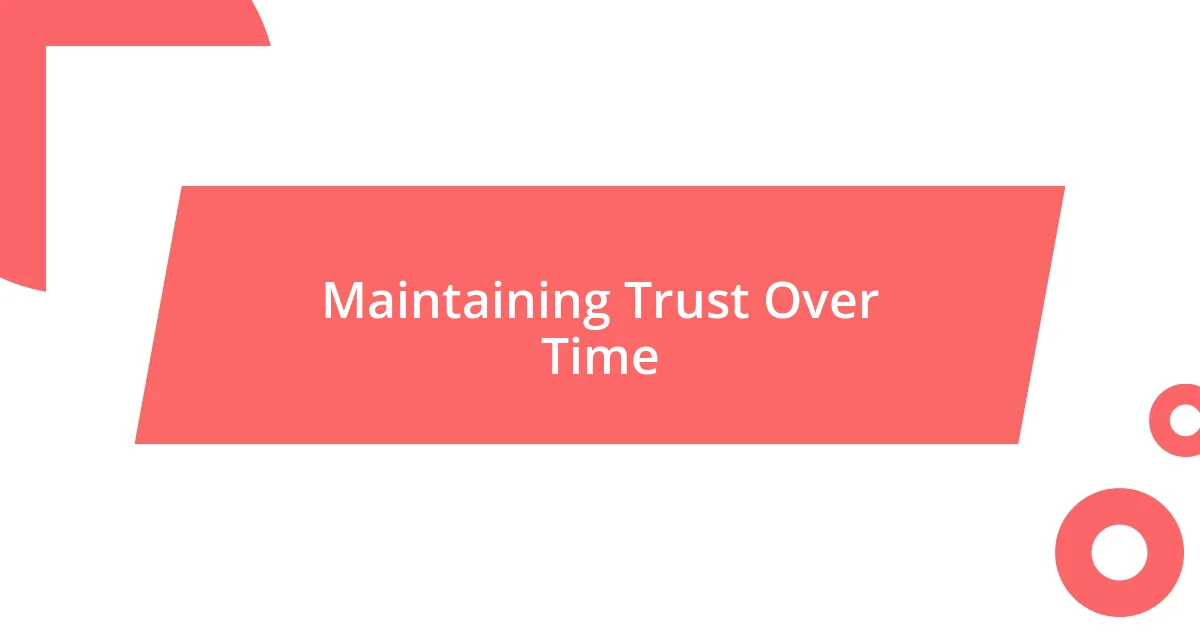
Maintaining Trust Over Time
Maintaining trust over time requires consistent communication and transparency. I remember a period when my partner and I faced unexpected changes in our project timeline. Instead of withholding information, I made it a priority to relay updates as soon as they arose. It was comforting to know that we were both on the same page, addressing concerns together. Have you ever found that openness breeds more confidence between partners?
Another vital aspect of trust maintenance is honoring commitments. There was a time when I promised to deliver a report by a specific date, but life got in the way, and I found myself behind schedule. I reached out to my partner immediately, explained the situation, and requested an extension. By acknowledging my shortcoming, I reinforced the trust that we had built. Isn’t it fascinating how admitting our flaws can solidify relationships instead of weakening them?
Moreover, I’ve realized that regular check-ins can serve as a solid foundation for maintaining trust. Every month, my partner and I dedicate time to discuss not only our project’s progress but also how we’re feeling about our collaboration. This practice of staying connected has helped us address any small issues before they turn into bigger ones. Have you tried establishing regular touchpoints to keep your relationships thriving?
